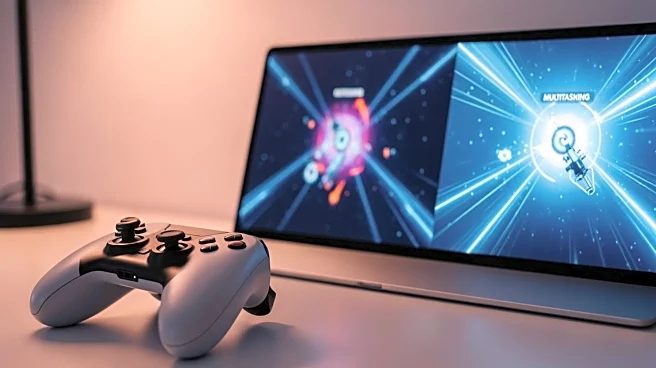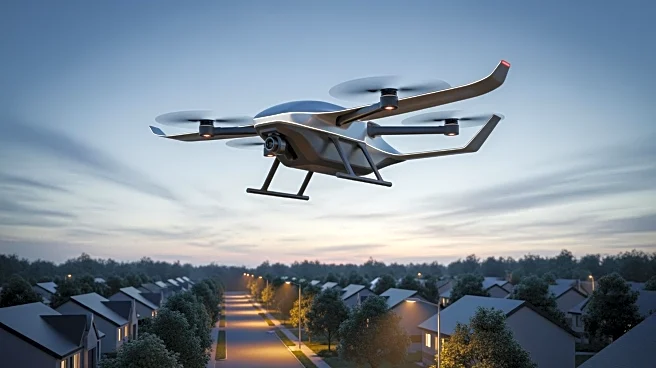What's Happening?
A study published in Nature has found that habitual video gaming is linked to improved multitasking performance, although the role of cognitive capacity remains inconclusive. The research involved 59 participants,
primarily officer cadets, who underwent various cognitive assessments and multitasking tasks. The study aimed to explore the relationship between video gaming experience and cognitive abilities, using structural equation modeling to analyze the data. While video gaming was found to predict multitasking performance, the mediation effect of cognitive capacity was not clearly established.
Why It's Important?
The findings contribute to the ongoing debate about the cognitive benefits of video gaming. By highlighting the potential for video gaming to enhance multitasking skills, the study suggests that gaming could be leveraged in training programs for professions requiring high multitasking abilities, such as aviation and military operations. This research may influence educational and occupational practices, encouraging the integration of video gaming as a tool for cognitive development.
What's Next?
Further research is needed to clarify the role of cognitive capacity in the relationship between video gaming and multitasking performance. Studies may focus on different gaming genres and their specific cognitive impacts, as well as longitudinal analyses to assess long-term effects. The research community may explore the potential for video gaming to be used in cognitive training programs, particularly in fields requiring complex multitasking skills.
Beyond the Headlines
The study raises ethical considerations regarding the use of video gaming in cognitive training and its potential impact on mental health. It also prompts discussions on the cultural perception of video gaming and its role in modern education and professional development.











